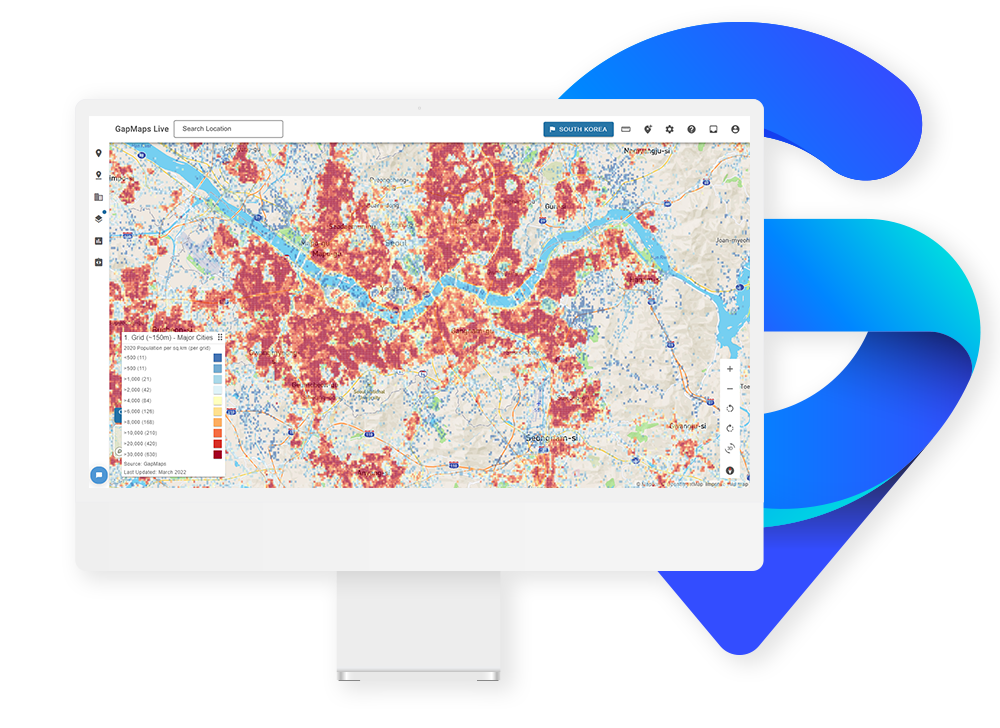
GapMaps expands in South Korea to help brands identify the best locations
GapMaps, a cloud-based mapping software specialist helping organisations with network strategies and location intelligence planning, continues to expand its international presence, expanding into South Korea.
Despite COVID-19, the quick service restaurant (QSR), fast food, café and fitness sectors in South Korea have adapted to new customer demand patterns and brands continue to expand their physical footprint.
GapMaps Live combines innovative location intelligence technology and data sets so brands can make informed physical location decisions. To do this, customers access geographic, demographic, economic, customer and competitor intelligence data, which includes population estimates for the resident and worker populations and consuming class data as at end of 2021, places of interest and the ability to track competitor brands in these sectors.
Brands can also integrate their own data into GapMaps Live such as visualising sales and performance and customer locations.
“Since 2018, we’ve been expanding rapidly in Asia-Pacific region and delighted to bring GapMaps Live to South Korea,” says Anthony Villanti, GapMaps’ Managing Director and Founder.
“Our market expansion is due to the accuracy and sophistication of our mapping software, which is easy to use and provides the very latest demographic and industry data essential to helping our clients analyse and choose the right physical location specific to their business needs.
“Today, we have more than 500 brands using GapMaps Live in sectors where a physical location is required, such as fitness, fuel, grocery, QSR, café, shopping centres and convenience stores,” adds Villanti.

Tim Shaw, GapMaps’ Director, Market Planning, says, “Many of our Australian customers are global brands and have encouraged us to enter new markets so they can use GapMaps Live as part of their overseas growth plans.
“A key reason for this is the GapMaps Live single login, which enables our clients to quickly visualise and manage their entire network of locations in markets across Australia, India, MENA, South-east Asia and now South Korea.”
South Korea is an attractive and sophisticated market with increases in pedestrian activity in central areas, shopping malls and other retail precincts.
“There are several districts in South Korea where we’ve observed a decline in population due to limited migration and low fertility rates. With GapMaps Live, our clients will be able to access the latest resident and worker populations and other demographic data right down to a very granular level so they can make better and more accurate decisions on optimum catchments for their next fast food restaurant, gym or café,” adds Shaw.
“The ability for brands to access key intelligence data in granular detail to know where their target customers are located and analyse what competitors are doing to uncover opportunities for expansion or optimising their existing network is enabling them to act with powerful knowledge and tremendous flexibility to find the right locations for their operations.”
The GapMaps’ clients contributing to international growth and benefitting from the data insights that GapMaps Live provides include brands like Domino’s, KFC, Starbucks, Burger King, Subway, McDonalds and Eat’n’Go, the franchisee for Domino’s, Cold Stone and Pinkberry in Kenya and Nigeria.
“Although the pandemic has impacted retail categories like food, hospitality and fitness, it has created an environment where global and local brands have used the time to reset, rethink and reassess their network planning strategies and physical location decisions, with many now active in expanding their physical networks across existing and new markets,” continues Shaw.
A good example of GapMaps Live in action in the fitness sector is with leading European gym operator PureGym, which has used the platform to validate the selection of two gym locations in Saudi Arabia with plans to add another eight new gyms this year and 40 clubs across key cities by 2025.
Susan Turner, Chief Executive Officer, PureGym Middle East, said “We deliberately didn’t pick a location simply because there was another fitness centre there. Instead, we decided to look at Saudi Arabia as a blank canvass and GapMaps Live provided the data and insights needed to help make our location decisions and quantify to the board that this is a location where we can hit our membership targets within a year.”
A GapMaps Advisory team has also been established to support customers in all markets. This team, which is the same people who built the GapMaps Live platform, provide consulting services, in-depth data analysis and research to help clients with new insights, strategies, and business plans.





